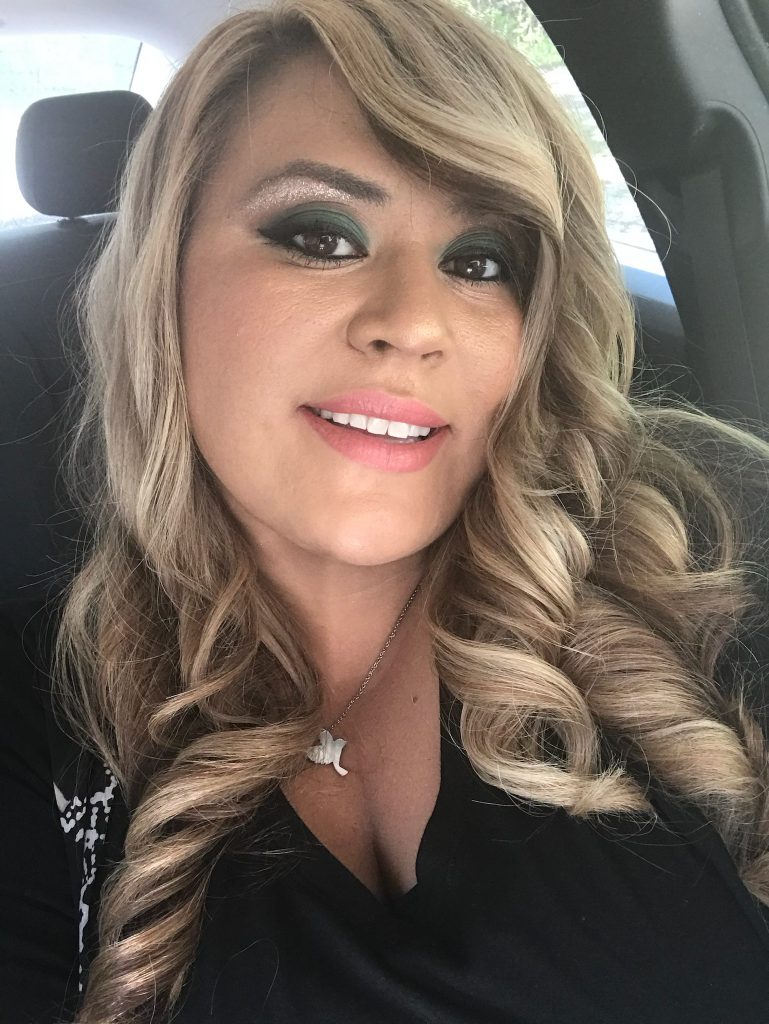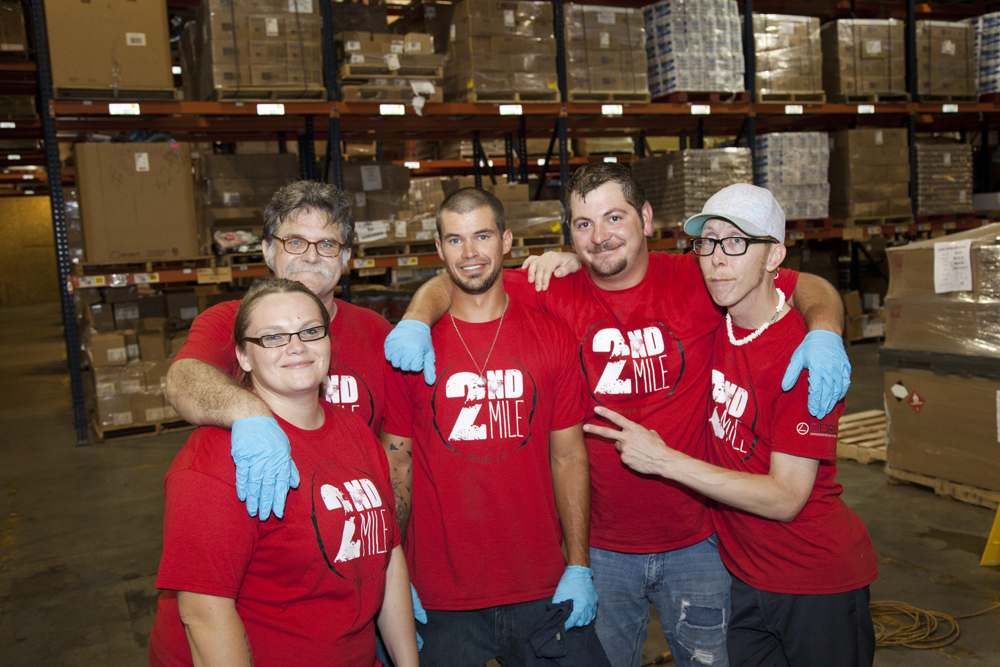A Conversation with Mykaella Ross!
As the saying goes, “Don’t talk the talk unless you can walk the walk!” For this newsletter we wanted to find somebody local who walks the path of sobriety with passion. We couldn’t just climb Top of the Rock and scan the horizon, so we asked around CORE – where all the recovered people are! Thankfully, we were in luck. Everybody told us the same thing: find Mykaella Ross! We caught up with her at CORE’s recovery center in Branson and talked about addiction and recovery.

Mykaella is a very different person from the young woman who came to us three years ago. She is a person of faith who lets her hopes, not hurts, guide her life’s path. She currently serves as manager of our JJ House and mentors younger clients in CORE’s EDGE program. The ladies of our program also tell us that she inspires them to grow and learn, and several of them have become house managers too. Mykaella also knows how to get things done. She’s an achiever who studies every aspect of a problem brought to her and tackles it with enthusiasm. That’s the way she approaches everything. We’re grateful that Mykaella has stayed with CORE since commencing our program, and we look forward to having her here for as long as we can.
It’s hard to believe it, but three years ago Mykaella counted herself among the most downhearted people on earth. She was enslaved to methamphetamines and crashing in a homeless shelter for women. She was unemployed, had lost everything, and was completely alienated from her family. What went wrong for Mykaella? How had things come to that?
We have to back up a few years and see Mykaella as a teenager. Popular and surrounded by boys, she was a precocious 4.0 student who also played high school sports. Although she was only fifteen years old, Mykaella had adult-sized, intractable problems that she was afraid to share with anybody else. For one, there was a rape. Then came an unexpected pregnancy which was medically terminated. It was all too big for her to handle, and she learned to escape by using alcohol to blot out her trauma, as well as her fears and resentments. Marijuana and prescription pain pills came along soon enough. The wheels really fell off when she discovered meth, and her drug-fueled odyssey ran on for nine long years.
She became a textbook addict who not only was powerless against drugs but whose life also was unmanageable. Mykaella described for us in fair detail the self-centered excesses and insanity of her addiction. She was living in a dog-eat-dog world where the law was never far behind (she spent her sixteenth, eighteenth and twenty-first birthdays locked up). Countless times she made solemn promises to get clean and sober, “but they didn’t last.” Something always came up that was too painful to deal with. Her typical day consisted of the following:
Smoking reefer, doing meth, selling it, any way possible. I was smoking meth throughout the day. If I go to work, I’m going to bring it to work and smoke it in the bathroom or put it in my coffee and drink it. I always thought of myself as this undercover tweaker. Like, I could put my face on, clothes, and go to work, but I’d be spun out of my mind.
If we could encapsulate her addiction experience into one short story, it has to be her last couple of days living in mayhem. Mykaella was staying at a trap house near Joplin and had given away all her meth because of yet another firm resolution she made. Such resolutions happened a lot but, being powerless, she felt the obsession return soon enough. In desperation Mykaella smoked the only thing she could find, meth taken from a bloody syringe. “I remember taking the hit and just crying,” she recalls, “I didn’t want to do it, but I did.” She then fled to a woman’s homeless shelter in Joplin. Antics ensued:
Even there, I still had to get one more. So I drive up to Carthage to meet up with some random dude and I smoke a doobie. Prior to this, I’d been up for nine days. On my way back I fall asleep at the wheel. I totaled my car, and it was a miracle that I didn’t kill myself or anyone else that day.
But I called [the car dealership] and told them the power steering went out. They said, call your insurance. Mind you, I’m that girl who just gets the insurance card and doesn’t continue to pay it. So they bring out the tow truck and I call the Joplin police department and say, I just want you to know, the power steering just went out on this car on main street. You don’t have to worry about it. I hitchhike back to this homeless shelter. It was just insane.
At the homeless shelter Mykaella became hysterical and also started seeing and hearing things, “I’m distraught, scaring the women in the shelter. They were like, please don’t get mad, but you need more help than this place can give you.” She broke down crying because she knew they were right. From the homeless shelter Mykaella went straight to rehab.
Now, she’d been to rehab before, but this time something was different. Mykaella and her group were visited by three women from CORE:
“They came there and gave their testimony. I remember them being so relatable. I never could understand why I always started, you know, why I couldn’t stop starting. They talked about the obsession and the allergy. They really broke down the cycle of addiction. I’m like, that’s me; that’s my life! After they finished giving their testimony, I remember crying and asking how I could get into their program.”
Mykaella made it to CORE, too. On the day of our interview, she expressed thanks for the generosity of those who made her trip here possible. Though she was not a member, two Joplin churches helped pay for her enrollment: Calvary Baptist and St. Mary’s Catholic. Mykaella’s mother and a friend also provided support.
God works miracles at CORE, and once here Mykaella did her part by putting in the study and work. She started taking her Big Book everywhere she went, including the Center and her job. She studied it during breaks and while she was waiting for transportation. She also began working on her Fourth Step, which took several weeks to complete:
That‘s where I started, writing all my resentments, then my fears. I thought those were hard. But then I had to write about my conduct and how I harmed people. That was the real hard part. It took several weeks, actually, while I worked on it. But I said, if this is what’s going to work, then I’m going to put my all into it. If I can dedicate my life to dope for ten years, I can do that for my recovery now. I don’t know what it’s going to look like, but I can do that.
Mykaella spent three days sharing the content of this paperwork with her Fifth Step partner.
Then the miracle happened. From being this hard person who callously used others to feed her addiction, Mykaella learned how to love herself and, in time, others around her. She recovered. Mykaella has completely put in the rearview mirror a lifestyle that was so damaged that normies can scarcely imagine it. She also learned how to communicate with others and wasted no time in carrying the message of hope to newcomers, i.e., there is a way out! Shortly before her commencement, Kevin Hunt and Sam Krause asked her to stay on at CORE and help run a house. Thus, during the last two years, Mykaella has taken turns managing our Vaughan, Quail, and JJ houses.
Happily, relationships with family have been renewed too. Her mom came and spoke at her commencement. Further, by making “living amends” to other family members, Mykaella has been restored to them as well. She cites her younger siblings as an example, saying “It’s cool today because my little brother and sister call me. They call just to see how I’m doing or to talk about something. That didn’t happen before.”
On top of all of this, Mykaella has an awesome new career at Capital Vacations working alongside of Erica Hunt, wife of our own Kevin Hunt!
In addition to the positives of sobriety, Mykaella has faced genuine challenges too. Only last April, her dad tragically passed away. In the past, such misfortune would have led to another binge. This time, however, Mykaella turned to God:
“When he died, I felt all the guilt, the things that I did, they all came up again. I thought I’d been processing as things came along but, when something this traumatic happens, you have to step back and be cautious about what you’re going through, to feel those emotions. I don’t run from my emotions today. You know, it hurts so bad. I’d always run from that. But after my dad died, I actually walked through that fear of feeling the pain. It was all God, and I’m grateful for that.”
Speaking of CORE’s significance to her personally, Mykaella is adamant, saying “Recovered, I’m living. Using, I’m dying. Today, I’m living!” She still remembers when she first arrived here all those years ago. She had no idea what to expect, only that “I knew I needed to be here.” She didn’t like herself very much, either, but she was certain that “God can make you to be whoever He wants you to be.” As a result, Mykaella unreservedly turned her will and life over to His care. Today she sees herself as a completely different person who has been renewed in mind and spirit. She smiles, “I can look back and say, thank you God, for transforming me!”



